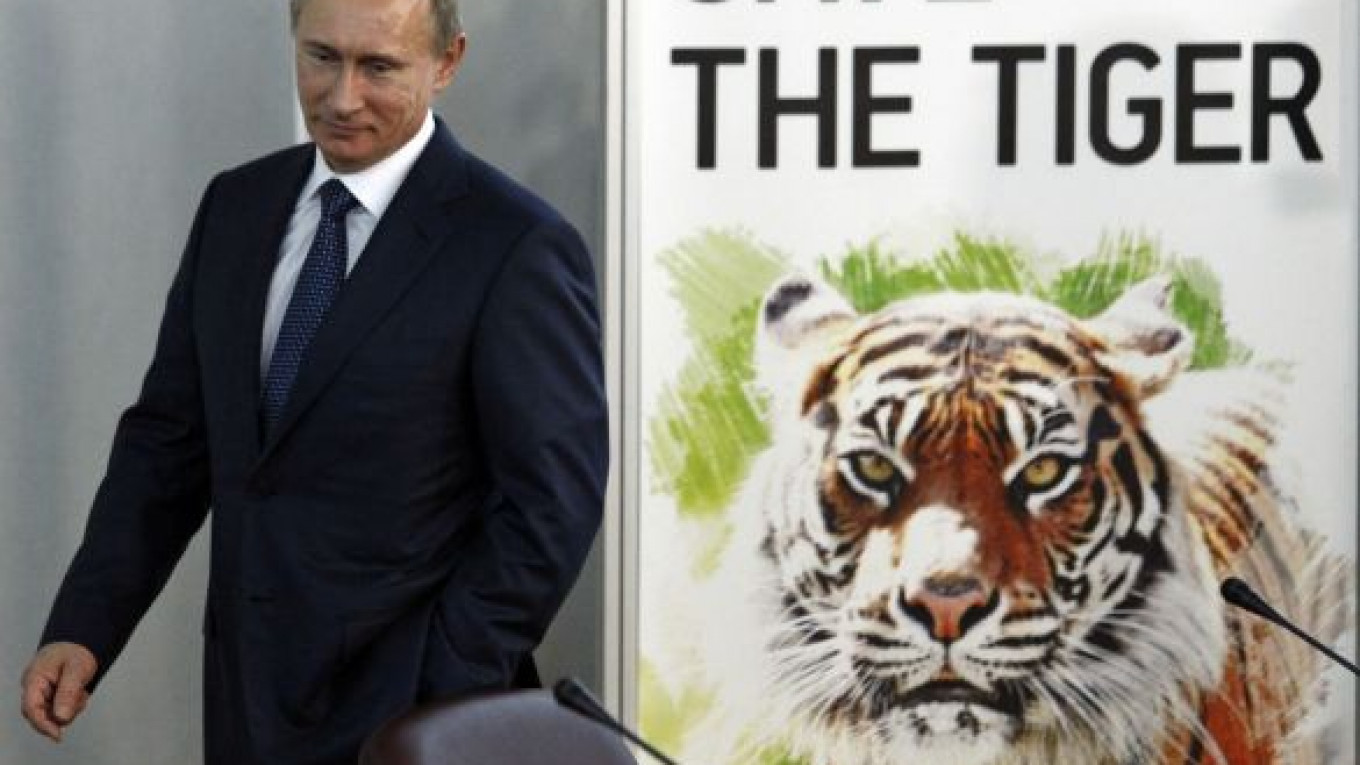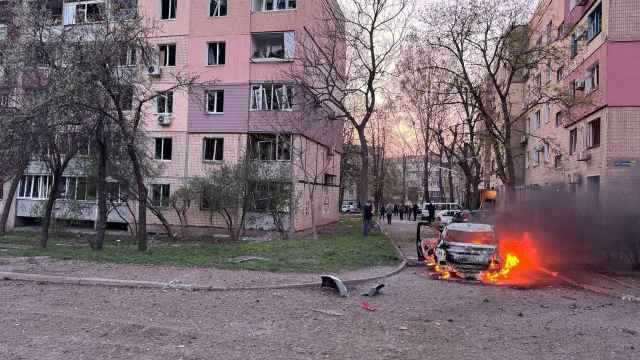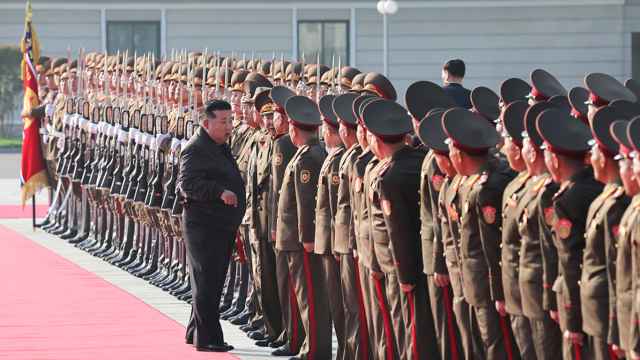ST. PETERSBURG — Prime Minister Vladimir Putin and Chinese Premier Wen Jiabao on Tuesday agreed with other Asian nations to try to double the world's wild tiger population by 2022 and save it from extinction.
Just 3,200 tigers now live in the wild, down from 100,000 a century ago, and those that remain face a losing battle with poachers who supply traders in India and China with tiger parts for traditional medicines and purported aphrodisiacs.
Putin, whose country is one of 13 that are home to the world's last wild tigers, hosted a "tiger summit" with Wen and representatives from other Asian countries, the highest-level meeting ever held to try to save a single species.
"It is very important to save this wonderful, imperial creature — the tiger — for future generations," Putin said, adding that its situation worldwide was approaching "catastrophe."
His spokesman, Dmitry Peskov, said a program to double the number of free-roaming tigers by 2022 was approved Tuesday.
Initially, $350 million will be spent over the next five years, according to coordinators the World Bank and conservation organization WWF.
But implementation will be key and without tough measures to halt poaching and deforestation by the 13 nations, tigers could cease to exist in the wild by that time.
"Here is a species that is literally on the brink of extinction," WWF director general Jim Leape said.
"If we cannot succeed now, if current trends continue, by 2022 we will have only scattered remnants of the populations left," he said.
Putin, who was given a tiger cub for his 56th birthday, has tried to court Russia's growing environmental movement by throwing his weight behind efforts to save the tiger, which roams across the vast forests of Russia's Far East.
The prime minister has also referred to Indian freedom fighter Mahatma Gandhi's quote: "The greatness of a nation and its moral progress can be judged by the way its animals are treated."
But conservation groups say governments and activists have failed to stop the poachers.
"The tiger population around the world has been dwindling away and the tiger conservation community has been putting in a lot of effort, but we're not succeeding," said John Robinson, chief conservation officer of the U.S.-based Wildlife Conservation Society.
"If nothing changes radically we are going to see a lot of tiger populations blinking out," he said.
Wild tiger numbers have tumbled 97 percent in the past decade and up to four of the nine tiger subspecies have vanished.
Celebrities such as U.S. actor Leonardo DiCaprio have committed to the campaign, donating $1 million on Tuesday.
A marker of the summit's success will be the launch of a consortium to fight wildlife smuggling, said John Sellar, chief enforcement officer for the Convention on the International Trade in Endangered Species.
"The key thing is enforcement," he said. "The situation is now so serious that if we don't get enforcement very soon then the money that we're spending in other areas, one could almost say, is flushing down the toilet."
India is at the center of the trade with the most seizures of tiger parts, followed by China, where nearly every inch of the tiger fetches a high price, with pelts sold for as much as $35,000, according to black market database Havoscope.
"If someone breaks into your house at night and steals your DVD player, the insurance company is going to pay for you to go and get another. When the final tiger or leopard is gone — that's it," Sellar said. "If we can't do it for the tiger, then I think we have to ask, are we going to be able to do it for anything else?"
A Message from The Moscow Times:
Dear readers,
We are facing unprecedented challenges. Russia's Prosecutor General's Office has designated The Moscow Times as an "undesirable" organization, criminalizing our work and putting our staff at risk of prosecution. This follows our earlier unjust labeling as a "foreign agent."
These actions are direct attempts to silence independent journalism in Russia. The authorities claim our work "discredits the decisions of the Russian leadership." We see things differently: we strive to provide accurate, unbiased reporting on Russia.
We, the journalists of The Moscow Times, refuse to be silenced. But to continue our work, we need your help.
Your support, no matter how small, makes a world of difference. If you can, please support us monthly starting from just $2. It's quick to set up, and every contribution makes a significant impact.
By supporting The Moscow Times, you're defending open, independent journalism in the face of repression. Thank you for standing with us.
Remind me later.






